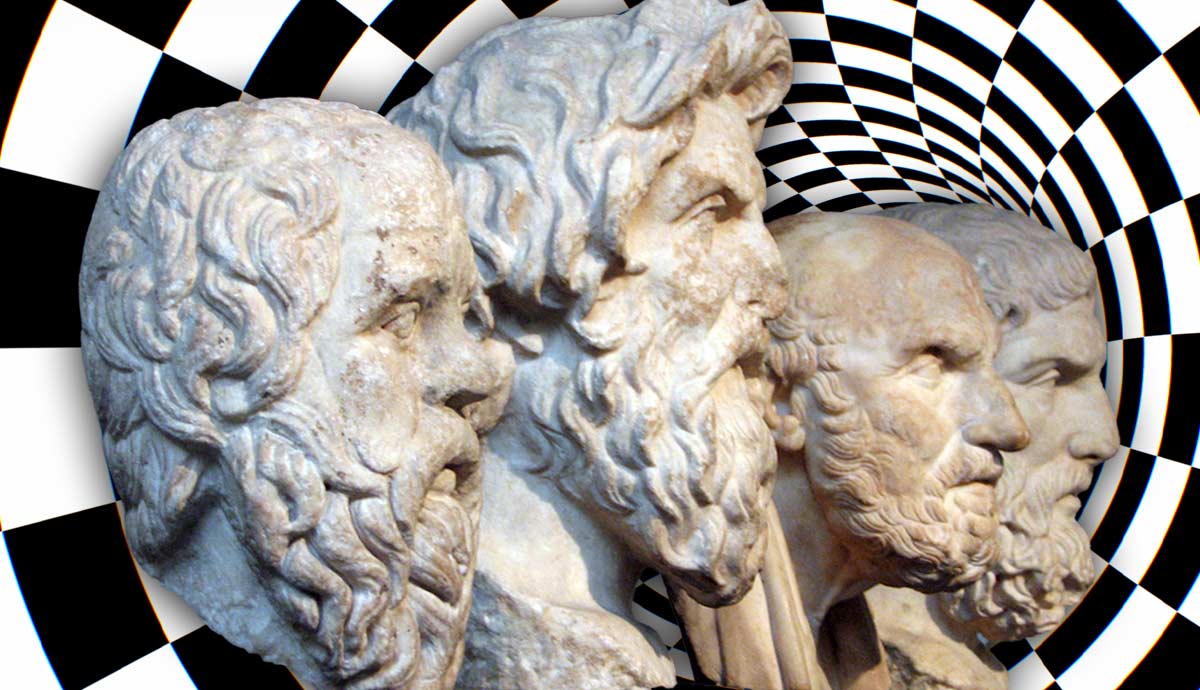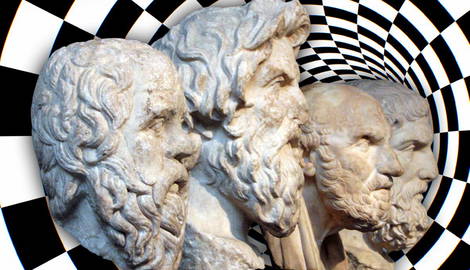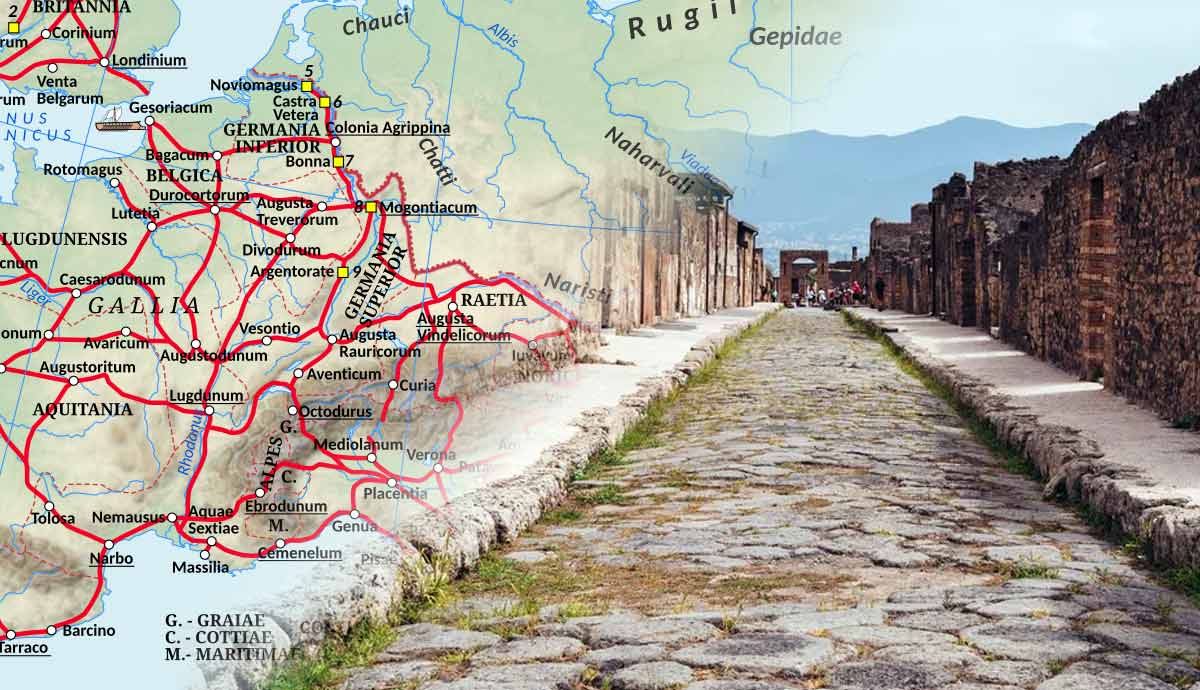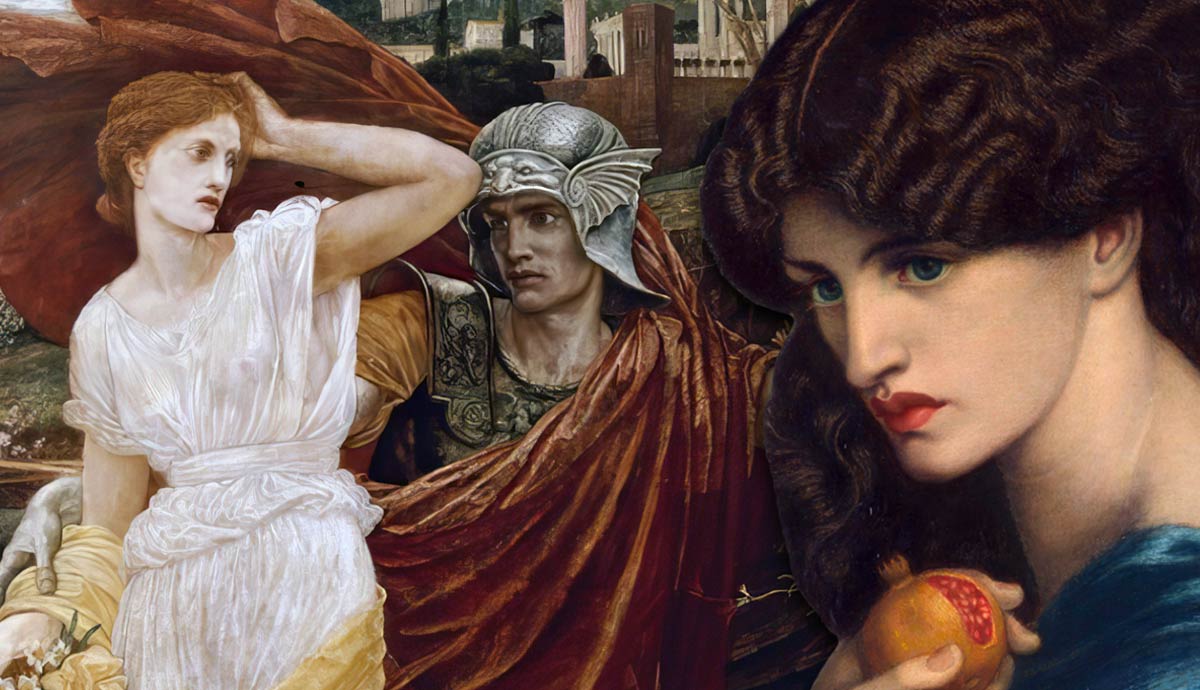
Much has been made of Greek philosophers. In various media, their quotes are frequently used. What made this all possible came from the early shift from myth to reason, using writing enabled the sharing of ideas, and the open spread of ideas. And some of these quotes to wrestle with are head-spinning. Please read on.
“No man ever steps in the same river twice, for it’s not the same river and he’s not the same man.” – Heraclitus

Nicknamed “The Obscure” for his inscrutable writing, Heraclitus of Ephesus (c. 475-535) in Asia Minor believed as shown in his quotes. Heraclitus believed in panta rhei, or “everything flows.” So, what makes his quote so mind-bending? The quote sticks to his philosophy of constant flux. Once one steps into the river, the water one touches swirls away. As for man, his awareness, thoughts, and feelings change constantly. Time can’t be stopped or returned to. The world is constantly moving, constantly changing.
“The only true wisdom is in knowing you know nothing.” – Socrates

Creator of the aptly named Socratic method, Socrates developed this disciplined questioning to explore ideas, spark serious thinking, and discover fundamental assumptions. Socrates lived a life of poverty. Many considered him eccentric or offensive, in opposition to Athenian standards. Put on trial for corrupting Athenian youth and impieties, city officials executed Socrates in 399 BCE.
Given Socrates’ life, why is this quote considered baffling? First, this quote is viewed as a paradox: someone knows they know nothing. This turns wisdom on its head. Despite being a challenge to one’s pride, knowing nothing opens up experiences or events as opportunities to learn.
“If there were no absurdity, there would be no wisdom.” – Antisthenes

Antisthenes (c. 445-365 BCE), an Athenian like Socrates and his student, too, later founded the Cynic philosophy movement. Sadly, he also witnessed his mentor’s execution. He, too, earned a reputation for provocation, plainness, and wit. Antishenes pushed for a simple life; he prized deeds over words and disliked luxury.
So why is this quote perplexing? Simply because the quote flips logic around. Opposite to wisdom is absurdity-“the state or quality of being ridiculous or wildly unreasonable” (Oxford Dictionary). To Antisthenes, wisdom isn’t always apparent; nonsense is needed to expose absurdity to arrive at the truth.
“Nothing exists except atoms and space; everything else is opinion.” – Democritus

A pre-Socratic scholar with a large body of work, Democritus is best remembered for his atomic theory of the universe. Born in Abdera, Democritus (c. 460 BCE to 370 BCE) wrote on various topics such as farming, philosophy, and painting. Known as the “Laughing Philosopher” due to his cheerful nature. He laughed as wisdom involved joy. So how does Democritus’s quote throw a philosophical curveball? Democritus considered only atoms and empty space to be real. Things like morality, color, taste, emotion, and more are just interpretations—one’s senses how they interpret their reaction to atoms, not the actual thing. One is forced to tackle what’s true and not perception.
“First say to yourself what would you be; and then do what you have to do.” – Epictetus

Unlike other Greek philosophers, Epictetus’s life began in slavery. He gained permission to study philosophy with Stoic thinkers, who profoundly influenced him. Upon being free, Epictetus opened a Stoic school in Greece. Physically impaired with a lame leg, possibly from birth or in childhood. He was known for his Stoic endurance. Born in Abdera, Democritus (c. 460 BCE to 370 BCE) wrote on various topics such as farming, philosophy, and painting.
With Epictetus’s quote, how does it baffle the reader? Let’s break down the quote. By reading the first part, “first say to yourself what would be be” the individual is required to intentionally choose goals and values. Or in short, don’t drift through life. The second section of the quote, “then do what you have to,” urges one to follow that vision. Epictetus believed that people acted first and then rationalized later. Such a trait can be overcome with discipline and consistency.
“We are what we repeatedly do. Excellence, then, is not an act, but a habit.” – Aristotle

As one of history’s most famous philosophers, Aristotle was a student of Plato and tutored Alexander the Great. Born in 384 BCE, this famous Greek died in 322 BCE. He believed greatness wasn’t momentary, but rather daily. This could be achieved through consistency and discipline. Why does Aristotle’s quote sound confusing millennia later? His quote is that excellence is not an event but a routine. The mind bender breaks down extraordinary and normal. These should become a habit; there are no shortcuts.










